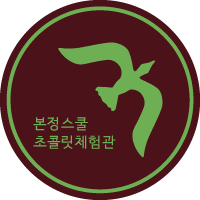My Biggest Azal Qiymetleri Lesson
페이지 정보

본문
The Future of Virtual Reality in Education: Revolutionizing Learning Experiences
Virtual Reality (VR) technology has been steadily gaining momentum in recent years, and its potential applications in various fields are becoming increasingly evident. In particular, the use of VR in education and training is poised to revolutionize the way we learn. With its immersive and interactive nature, VR has the power to provide unprecedented learning experiences that can engage students on a whole new level. This article explores the future of VR in education and the manifold benefits it may bring, ultimately enhancing the way we acquire knowledge.
One of the primary advantages of VR in education is its ability to transport learners to any place or time, regardless of geographical or historical constraints. For instance, history students no longer need to rely solely on textbooks or videos to visualize ancient civilizations. Instead, they can step into virtual replicas of historical sites, walk amidst architecture of the past, and experience the ambiance of the eras they are studying. This level of immersion allows students to forge a deep connection with the subject matter, fostering a memorable and lasting educational experience.
Moreover, VR opens up possibilities for hands-on learning in fields that traditionally lack practical applications. For instance, in scientific education, VR can enable students to conduct experiments that would otherwise be unattainable due to cost, safety concerns, or ethical limitations. Through VR simulations, budding chemists can manipulate molecular structures and witness chemical reactions at a microscopic level, enhancing their understanding of complex concepts. Similarly, medical students can practice surgical procedures in virtual environments, developing vital skills without the need for azal qiymetleri live patients.
Additionally, VR has the potential to address individual learning styles and cater to unique student needs. In traditional classroom settings, teachers often struggle to accommodate different learning speeds or preferences. However, with VR technology, students can engage in personalized learning experiences that adapt to their specific requirements. For instance, a student who learns better through visual aids can explore intricate 3D models in VR, while an auditory learner can listen to interactive lectures. By tailoring educational content to individual students, VR can unlock their full potential, enabling them to excel in their studies.
Furthermore, VR can facilitate collaborative learning experiences that transcend physical boundaries. With virtual classrooms, learners from all corners of the globe can interact in real-time, fostering a sense of global citizenship and cultural exchange. This virtual collaboration not only enhances students' understanding of diverse perspectives but also prepares them for the increasingly interconnected world they will face in their future endeavors.
Despite the immense potential of VR in education, several challenges need to be addressed for its widespread adoption. Cost is a significant barrier, as VR equipment and software can be expensive for institutions with limited resources. Additionally, designing high-quality educational VR content requires expertise and resources that may not be readily available. Moreover, the potential negative effects of prolonged VR usage, such as motion sickness or eye strain, need to be thoroughly studied and mitigated.
In conclusion, the future of VR in education holds tremendous promise for revolutionizing learning experiences. By providing immersive, interactive, and personalized educational content, VR has the potential to create a paradigm shift in the way we acquire knowledge. From unlocking historic sites to conducting virtual experiments or fostering global collaboration, the possibilities are vast. However, overcoming challenges such as cost and content creation will be crucial for the widespread adoption of VR in education. As technology continues to advance and investment in VR education grows, we can look forward to a future where traditional learning methods are augmented and enhanced by the wonders of virtual reality.
Virtual Reality (VR) technology has been steadily gaining momentum in recent years, and its potential applications in various fields are becoming increasingly evident. In particular, the use of VR in education and training is poised to revolutionize the way we learn. With its immersive and interactive nature, VR has the power to provide unprecedented learning experiences that can engage students on a whole new level. This article explores the future of VR in education and the manifold benefits it may bring, ultimately enhancing the way we acquire knowledge.
One of the primary advantages of VR in education is its ability to transport learners to any place or time, regardless of geographical or historical constraints. For instance, history students no longer need to rely solely on textbooks or videos to visualize ancient civilizations. Instead, they can step into virtual replicas of historical sites, walk amidst architecture of the past, and experience the ambiance of the eras they are studying. This level of immersion allows students to forge a deep connection with the subject matter, fostering a memorable and lasting educational experience.
Moreover, VR opens up possibilities for hands-on learning in fields that traditionally lack practical applications. For instance, in scientific education, VR can enable students to conduct experiments that would otherwise be unattainable due to cost, safety concerns, or ethical limitations. Through VR simulations, budding chemists can manipulate molecular structures and witness chemical reactions at a microscopic level, enhancing their understanding of complex concepts. Similarly, medical students can practice surgical procedures in virtual environments, developing vital skills without the need for azal qiymetleri live patients.
Additionally, VR has the potential to address individual learning styles and cater to unique student needs. In traditional classroom settings, teachers often struggle to accommodate different learning speeds or preferences. However, with VR technology, students can engage in personalized learning experiences that adapt to their specific requirements. For instance, a student who learns better through visual aids can explore intricate 3D models in VR, while an auditory learner can listen to interactive lectures. By tailoring educational content to individual students, VR can unlock their full potential, enabling them to excel in their studies.
Furthermore, VR can facilitate collaborative learning experiences that transcend physical boundaries. With virtual classrooms, learners from all corners of the globe can interact in real-time, fostering a sense of global citizenship and cultural exchange. This virtual collaboration not only enhances students' understanding of diverse perspectives but also prepares them for the increasingly interconnected world they will face in their future endeavors.
Despite the immense potential of VR in education, several challenges need to be addressed for its widespread adoption. Cost is a significant barrier, as VR equipment and software can be expensive for institutions with limited resources. Additionally, designing high-quality educational VR content requires expertise and resources that may not be readily available. Moreover, the potential negative effects of prolonged VR usage, such as motion sickness or eye strain, need to be thoroughly studied and mitigated.
In conclusion, the future of VR in education holds tremendous promise for revolutionizing learning experiences. By providing immersive, interactive, and personalized educational content, VR has the potential to create a paradigm shift in the way we acquire knowledge. From unlocking historic sites to conducting virtual experiments or fostering global collaboration, the possibilities are vast. However, overcoming challenges such as cost and content creation will be crucial for the widespread adoption of VR in education. As technology continues to advance and investment in VR education grows, we can look forward to a future where traditional learning methods are augmented and enhanced by the wonders of virtual reality.
- 이전글10 Things You Learned From Kindergarden They'll Help You Understand Online Slots 23.10.29
- 다음글What Is Mini Cooper Key Fob And How To Use It? 23.10.29
댓글목록
등록된 댓글이 없습니다.


 043-645-1973
043-645-1973